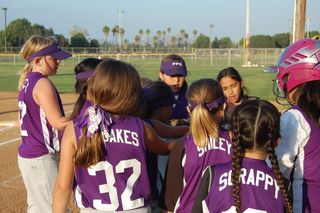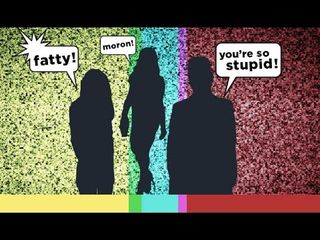 Bias is a reality of the human spirit. We exhibit bias in many ways, such as when personal experience works to our advantage and helps us make a correct decision or choice. Bias can also result in flawed evaluations, which may contribute to errors of reasoning and undesired performance outcomes. Self-evaluation bias, sometimes called “myside bias” (Stanovich, 2009), is the tendency to believe that your way of thinking and reasoning is superior to the methods used by someone else in an identical or highly similar situation. Perhaps the best example of self-evaluation bias is the highway dilemma. Everyone knows that the person driving faster than you is reckless and irresponsible, whereas the person driving slower than you is obviously deficient in both driving ability and common sense. Such biased reasoning often leads to the erroneous conclusion that your driving behavior is entirely justified and correct, while believing the speeds of the other drivers are wrong. However, ponder what the other drivers think about your speed? There is no such thing as NO motivation! Biased thinking applies to many aspects of performance motivation besides driving. Have you ever uttered the words “he is unmotivated” or “she has no initiative,” when describing a spouse, partner, child, student, or co-worker? Most likely, if you have not spoken those words, you have probably heard them! My interactions with teachers and business leaders frequently suggest that academic apathy or lack of engagement in the workplace signifies the absence of motivation. The bias in this case is the belief that the apparent absence of a specific behavior signifies no motivation at all. Although, strong evidence supports qualifying both academic motivation and personal motivation (e.g., self-control) as a renewable resource like a recovering muscle after an exhausting workout, having “NO motivation” is a convenient misnomer people use to describe someone who does not think or act like you do!  Social comparison can ruin performance. We must also contend with the reality that many people set goals, exhibit behaviors, and evaluate personal success by comparing themselves to other people who they either admire or dislike. This social comparison type of approach leaves us susceptible to confirmation bias, which occurs when we seek out and remember evidence that confirms our beliefs, while unconsciously filtering out information inconsistent with those same beliefs, values, and customs. In this case, the bias occurs because the comparison ignores objective performance standards and shifts attention toward modeling another person’s behavior or deliberately trying to be different from another person. Social comparison involves choice, with some people striving toward besting the performance of a rival, while others elect to protect themselves from deflating consequences and humiliation by avoiding the failed or botched outcomes achieved by another. If we ever needed an example of “downward” social comparison that exemplifies confirmation bias, the US presidential election serves us well. Regardless of who you support, the candidates regularly seek out evidence to discredit, belittle, and humiliate their opponent. At the same time, each candidate ignores the accomplishments of their rival, rarely focusing on which skills are needed to effectively do the job of the President of the United States. There are some psychological benefits achieved from confirmation bias and the person-to-person comparison process. When comparing ourselves to “lessor others” we develop positive self-concepts and build our egos, which protects us from self-doubts about our capabilities and performance. Self-comparison can also be useful to elevate emotional status and mood as the feelings generated from comparison can bolster a person’s sense of self-worth. Despite the apparent benefits, comparing ourselves to another individual is actually less effective to foster a performance motivation than comparison to an absolute standard (Pintrich, 1999). When a comparison leads to negative self-evaluations, trouble looms as individuals maybe less willing to take risks and develop negative moods and fewer feelings of overall well-being (Aspinwall & Taylor, 1993).  The adolescent impact The social comparison process is especially tricky for adolescents. When comparisons fall short of expectations, especially in nonacademic subjects such as music or physical education, challenges can develop. Many times, who is selected to perform with the high school band or who is designated to be on the football or cheerleading team has a bearing on social status. Mastery of particular skills are secondary for peer and group inclusion, as typically the individuals deemed most competent in comparison with others are selected for important roles despite the potential lack of certain skills or abilities. I know for sure when I won the part of playing Helen Keller’s brother, James, in my high-school production of the “Miracle Worker,” it wasn’t because of my stellar thespian ability, but likely because no one better auditioned and I agreed to show up for rehearsal every day! The comparative evaluative process is in stark contrast to the “real world,” where many placement and selection decisions are based on competency and the ability to meet or exceed specific performance standards. Ironically, biased perceptions may influence how we evaluate adults in many commonplace, life-changing vocational and personal situations. Interpersonal comparisons determine if we are suitable for college based upon SAT scores, influence the choice of our social and romantic partners, and often social comparisons determine who receives an employment offer and who does not. The social comparison motive is so powerful that it spawned the colloquial “big fish, little pond” effect (Marsh, 1987), whereby people prefer to be an expert among less qualified individuals. Being the big shark in a tank full of guppies does not guarantee success and actually may give the person a false sense of competency in absence of actual skill and ability. However, there can be psychological benefits when yu are the “big fish.” Numerous studies across cultures and age groups reveal that when individuals of equal ability perceive they are in a “low ability group” they experience more positive self-evaluations, have higher academic self-concept, and earn higher grades compared to when the same individuals are immersed in more demanding and competitive high-ability learning situations.  Why do we like reality TV? While social comparison has potential negative implications and may bias our self-perceptions and the assessment of others, there may be an even more radical consequence to society, the prevalence of the twenty-first century media phenomenon known as reality TV! While some research indicates that the popularity of reality television is due to a perception of connectedness or personal gratification received from watching the characters (Barton, 2013), social comparison motives may be a more plausible explanation for the immense popularity of the medium. What happens when we watch reality TV? Viewers lacking in positive self-evaluations enjoy the frustrations and setbacks of the odd behaviors exhibited by pseudo-celebrities and the rambunctious, egotistical, and social misfits often portrayed on the screen. Indeed, results from surveys investigating viewer motivation for watching reality television reveal that people watch to escape their mundane lives and to gain satisfaction from watching other people making fools of themselves (Lundy, Ruth, & Park, 2008). Positive psychological benefits emerge from the viewer/celebrity social comparison, despite making comparative and biased judgments about people we hardly know and yet are swift to indisputably evaluate and broadly criticize. Bias eliminating strategies Clearly, my remarks are biased and potentially conflict with your own beliefs and personal worldviews. However, research reveals that adaptive motivation starts with appropriate reasoning and the suspension of personal bias. A necessary first step for objectivity is the evaluation of persuasive arguments based upon the merits of objective evidence, not upon comparison to others, historical outcomes, personal experience, hearsay findings or what we would like to believe is true about ourselves. For a complete list of strategies to overcome personal bias and accelerate motivational change, check out my latest book here. Otherwise, follow me on Twitter for daily updates on teaching, learning, motivation, and optimal performance. ____________________________________________________________ Reference Aspinwall, L. G., & Taylor, S. E. (1993). Effects of social comparison direction, threat, and self-esteem on affect, self-evaluation, and expected success. Journal of Personality and Social Psychology, 64(5), 708–722. http://dx.doi.org/10.1037/0022-3514.64.5.708. Barton, K. M. (2013). Why we watch them sing and dance: The uses and gratifications of talent-based reality television. Communication Quarterly, 61(2), 217–235. http://dx.doi. org/10.1080/01463373.2012.751437. Lundy, L. K., Ruth, A. M., & Park, T. D. (2008). Simply irresistible: Reality TV consumption patterns.Communication Quarterly, 56(2), 208–225. http://dx.doi.org/10.1080/01463370802026828. Marsh, H. W. (1987). The big-fish-little-pond effect on academic self-concept. Journal of Educational Psychology, 79(3), 280–295. Pintrich, P. R. (1999). The role of motivation in promoting and sustaining self-regulated learning. International Journal of Educational Research, 31(6), 459–470. Stanovich, K. (2009). What intelligence tests miss: The psychology of the rational mind. New Haven, CT: University Press.
2 Comments
Leave a Reply. |
AuthorBobby Hoffman, Ph.D., author of Motivation for Learning and Performance, is an Associate Professor at the University of Central Florida. Archives
June 2017
Categories |

 RSS Feed
RSS Feed